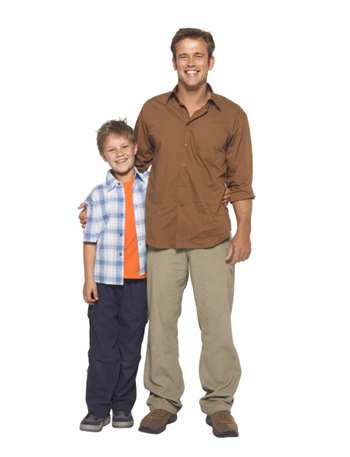by Jane Nelsen, co-author of Positive Discipline for Teenagers.

I just received an interesting question from a journalist wondering if parents could be both a friend and a disciplinarian. Following is my answer:
I'm not sure what you mean by disciplinarian and what you mean by friend. When people say, “You should be a parent, not a friend to your children,” I always wonder what kind of friend they are talking about. The implication is that friends are wishy washy. I don't have any wishy washy friends. My friends treat me with respect, are honest, hold me accountable, tell me what I need to hear in very loving ways, and don't put up with disrespect. And they love me and encourage me through all my ups and downs. Sounds like good parenting to me.
Regarding the disciplinarian part of the question, in all of the Positive Discipline books, we do not advocate punishment of any kind—which is what most people mean by disciplinarian. We believe in respectfully involving kids in focusing on solutions that are respectful to everyone.
How many friends would we have if we used any of the following disciplinarian methods with them?
- Lecture
- Nag
- Try to control through punishments and withdrawal of privileges
- Tell us what to do, when to do it, and how to do it
- Withdraw love or show strong disappointment when expectations aren’t met
A theme I share with parents and teachers is "connection before correction." In other words, you have to have a good relationship before you can teach children anything—and then correction still means solving problems together respectfully. Parents would have much greater influence if they were good friends to their children by:
- Encouraging (unconditional love)
- Friendly discussions
- Brainstorming for solutions
- Scheduling special time for fun
- Regular family meetings that involve all of the above
- Making sure kids know you are on their side
One father shared that he was in the middle of an argument with his teenage son when he stopped and said, “Son, do you know I’m on your side?” His son got tears in his eyes and said, “How would I know that?” Friends usually know we are on their side. Do our children?
Create a connection (closeness and trust), and then use respectful methods for correction. In other words, be a good friend to your child.


Comments
Clarity in our different roles
I like very much how you emphasize "connection before correction." The question that was poised to you, regarding whether parents have to choose between being friends or being parents to our children, like many other questions, is a question based on a false either-or supposition. It assumes that when we become friends to our children, we abandon parenting, and that we are incapable of exercising discipline. I like how you question the definition of "discipline," too. As well as questioning what is meant by "friend." For me, "discipline" means the same thing as creating discipleship, which means that I exercise conscious effort to set an example worthy of my children's following. It means I am present with them in their development of their understanding of their reality, as I am in my interpretation of my own. Correction is something I must do with my own life, and I also respectfully correct others who wish to live more fully and consider me their friend. I hope that for my children, I am both friend and parent.